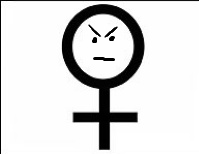A l0t has been said about the actions of people adopting black bloc tactics at the March 26th demonstration. An epic lefty clusterfuck ensued, with passionate defences and condemnations flying through the press, blogosphere and twitter.
As the dust settled, more nuanced discussion began, calling for critical thinking and discussion about strategy and tactics:
What Black Bloc has done is highlight a grey area in our thinking about protest, property and violence. We need to think deeply and critically about that, not just thoughtlessly denounce or defend.
I wholeheartedly concur with this sentiment, and would like to add my own concerns about Black Bloc tactics to the debate. My collection of psychology degrees and obsession with good decision making feature heavily in this analysis, and I express these views to add to the debate.
Black bloc involves anonymising all members of the group by wearing similar, all-black clothing, and, crucially, covering the face. There are several reasons for this:
Anarchists using the black bloc tactic wear masks for many reasons. The main one is the fact that the police videotape activists for their “Red” files. The police do this surveillance and information-gathering to frighten moderate activists from participation in protests and social struggle. The police do this even when there are laws against it (see red squads). Masks promote anonymity and egalitarianism. Instead of a “leader” yelling instructions to a protest group via a megaphone, those in the bloc make decisions among themselves. They also protect the identities of those who want to engage in illegal acts and escape to fight another day.
The identical clothing and masking of the face are therefore important tactics for creating anonymity, which, from a security perspective, is essential. From a psychological perspective, though, it is problematic.
Anonymity has some rather unfortunate side effects, most notably, the phenomenon of deindividuation. Deindividuation is the phenomenon which causes people on the internet to behave like dickheads. Deindividuation the phenomenon which facilitates massacres and police violence–after all, riot police cover their faces and become a swarming mass of identically-clad perpetrators of aggression. Deindividuation can lead to making strategically flawed decisions.
Three effects are thought to emerge from deindividuation:
- Weakening people against performing harmful or socially disapproved actions
- Heightening responsiveness to positive or negative cues
- Increasing adherence to group norms
Much has been made of the first point: whether the Black Bloc performed harmful actions. As RozK puts it:
If you have a loose structure and perform slightly random acts, you may end up going further than is compatible with the general will you are trying to embody. You are not going to persuade people of the justice of attacking the Ritz if you also attack a Pret. You are not going to keep the sympathy of people who might like you to target banks if you also go after the Boris bikes.
I can see the case against Pret and Boris bikes – but am not especially convinced, let alone convinced they would be any sort of priority.
I would regard these as concerns, not criticisms.
This theme has emerged frequently in discussion surrounding Black Bloc actions at the demonstration, and it would seem that many are uncomfortable with the selection of some of the targets. Some actions have certainly perceived to be harmful and undesirable from those who broadly support the nebulous aims of the Black Bloc.
It is entirely possible that some of the targets which were less-well selected were down to cue-responsivity: the lure of the Boris Bike was too great and subsumed the thought which generally tends to go into target selection.
It is therefore not a stretch to imagine that deindividuation may have contributed somewhat to Black Bloc actions. Importantly, though, deindividuation and its cousin, dehumanisation run the other way: a classic example of this is the Stanford Prison Study, in which ordinary people were made to act like prison guards and prisoners. A key effect was that the “guards” stopped seeing the “prisoners” as individual people.
Within the press, Black Bloc people have been seen as “thugs” and “hooligans”. Even on the left, this language has been used to describe Black Bloc. Furthermore, to police eyes, the Black Bloc cease to be human, thus providing impetus for indiscriminate brutality.
Because of these factors, I think that serious thought needs to be given to addressing this psychological effect. While many on the left hurriedly denounce Black Bloc, we in the anti-cuts movement are all together, and while showing solidarity, we need to rethink, regroup and focus on strategy.

Good points, well made. I think there’s something disturbing about people deliberately seeking deindividuation: it does provide a feeling of security, but at a high price. This is something I associate more with the extreme right or the authoritarian left. Have you seen the German film, ‘Die Welle’ (Wave)? It’s a beautiful study of this phenomenon.
Popping that on my “to watch” list; I do love a good social psychology film.
It is problematic that the practice is highly associated with unpleasant sorts, as it makes it a little harder to have these discussions, though I think it’s vital.
Another one to watch is ‘The Baader-Meinhof Complex’. A Glock tucked into your stocking top is damn sexy, but you just know it’ll all end in tears!
P.S. Mind you, I’ve been known to seek deindividuation myself, purely for the thrills, but in other ways …
Also, the Black Bloc is a UNIFORM. Yes, there are functional elements, but the uniformed, militant nature of the clothing is blatantly obvious. This has a psychological dimension relating to said deindividuation; both the wearer and perceiver of the uniform are affected.
They could have worn pink. Pink and black have pretty different associations in the West. Aren’t there Pink Blocs somewhere? Yes, I think so…..
Also, if the Black Bloc wants true anonymity, why not be more like ELF in terms of property destruction?